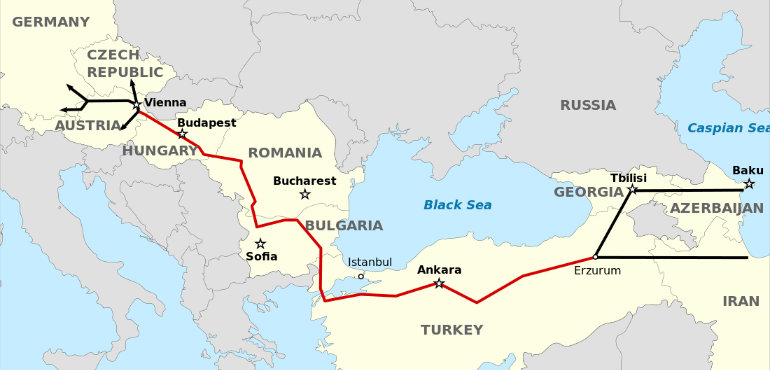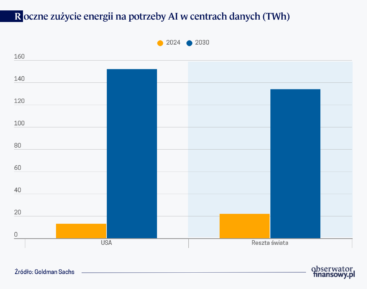German automotive industry at a crossroads
Category: Business

The Nabucco gas pipeline (Sémhur, Free Art License)
“We do not intend to feel offended by Bulgaria and other countries, which did not find the courage to resist the decisions of the European Commission,” Putin said, referring to the South Stream pipeline project, which foundered after the EU declared it incompatible with EU anti-monopoly laws in 2014.
“We are ready to come back to that [joint gas projects], but we need guarantees. We cannot and do not want to register losses from careless decisions,” Putin said.
Faced with European opposition, Russia pulled out of the South Stream project in 2014, which had been expected to deliver 63 billion cubic metres of Russian gas annually to Europe under the Black Sea.
Since the failure of South Stream Bulgaria has been aiming to create a Balkan gas hub through building interconnections with its neighbouring countries – Greece, Serbia and Romania.
Ideas for fresh joint Bulgarian-Russian energy projects have undergone a revival, for example in an interview for Bulgarian National Radio, a Russian energy expert, Konstantin Simonov, head of the Russian National Energy Security Fund (NESF), said Bulgaria could negotiate with Russia and the EU to build one of the pipes of the Russia-Turkey Turkish Stream project through its territory.
Simonov linked the construction of a pipeline for Turkish Stream to Bulgaria’s ambition to build a gas hub, saying that it could be directed to the Bulgarian-Greek border.
The election of a new President in Bulgaria, Rumen Radev, who has called for lifting of EU sanctions on Russia, has been warmly welcomed in Russia, where the media has portrayed the former general as a pro-Russian force.
The Bulgarian Energy Holding (BEH), which pools all state-owned energy assets, said it has acquired full control of the local unit of Nabucco Gas Pipeline International project company.
BEH’s main objective in the acquisition was to ensure 100 per cent Bulgarian ownership of the environmental impact assessment of the project on the country’s terrotory, which is valid until April 2018, as well as keep possession the results of research works for the use in potential future projects, the company told SeeNews.
The value of the transaction was not disclosed. Similar acquisitions of assets have been implemented on the Austrian and Hungarian sections of the projected pipeline route, BEH said.
Partners in the Nabucco project abandoned in 2013 were Austria’s OMV, Bulgaria’s Bulgargaz, Turkey’s Botas, Romania’s Transgaz and Hungary’s FGSZ, a subsidiary of MOL.
„At an earlier stage, there were signs of interest in the purchase of the assets of the project by an intermediary of an unknown foreign investor, which, in case a deal was concluded, would have led to uncertainty about the beneficiary and the purpose of such purchase of assets, including those located on Bulgarian territory,” BEH said.
The Nabucco pipeline was planned to take Caspian gas from the Turkish-Bulgarian border and carry it via Bulgaria, Romania and Hungary to the Central European Gas Hub at Baumgarten, in Austria. Nabucco West, a downsized version of the original Nabucco pipeline, was competing with the Trans Adriatic Pipeline for access to gas from the giant Azeri Shah Deniz II field in the Caspian Sea. However, in June 2013, the Shah Deniz Consortium selected the Trans Adriatic Pipeline as the gas transportation route.


